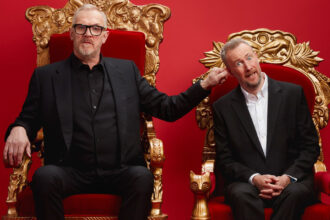Swoosie Kurtz On ‘Part Swan, Part Goose,’ ‘Pushing Daisies’ [VIDEO EXCLUSIVE]
Swoosie Kurtz, the veteran actress of stage, film and television, known for her roles in Pushing Daisies, Sisters and Fifth of July, credits her parents for her amazing success in her new memoir Part Swan, Part Goose. “I realized after a certain point later in my life that I have been raised by two icons of the greatest generation,” Kurtz told uInterview exclusively. “My mother and me made very different choices in life, but they both worked equally well for both of us and who we were and are.”












Leave a comment